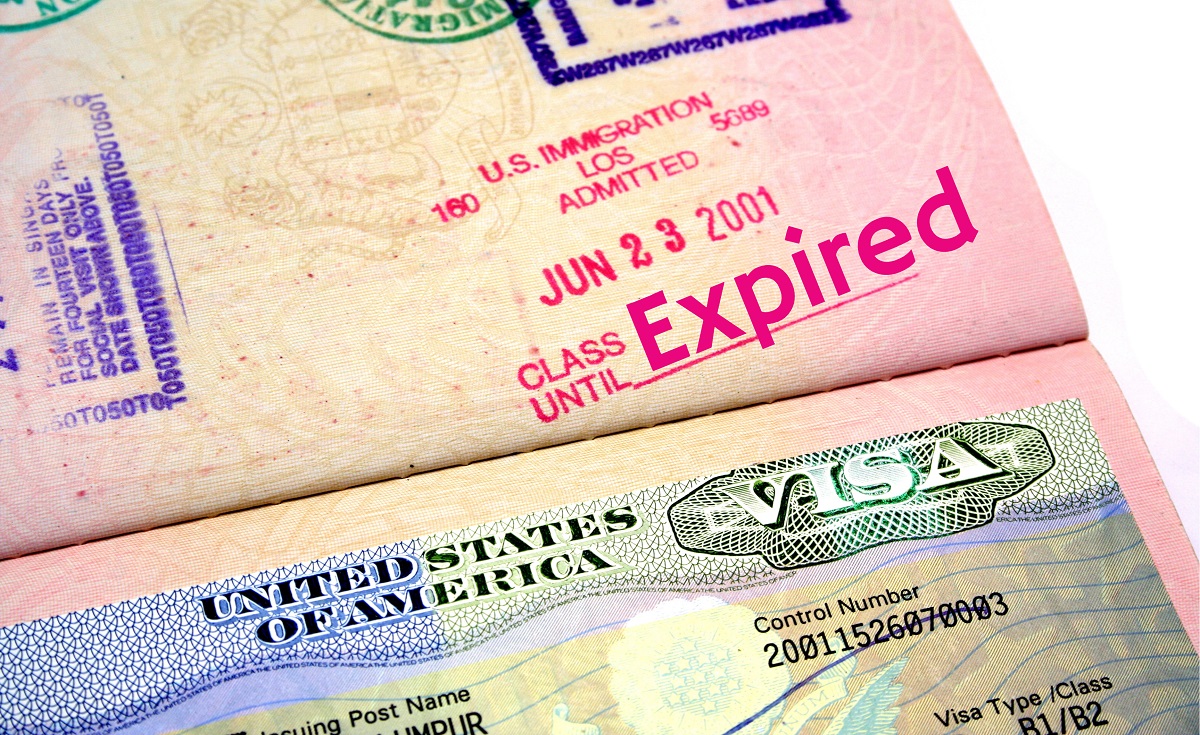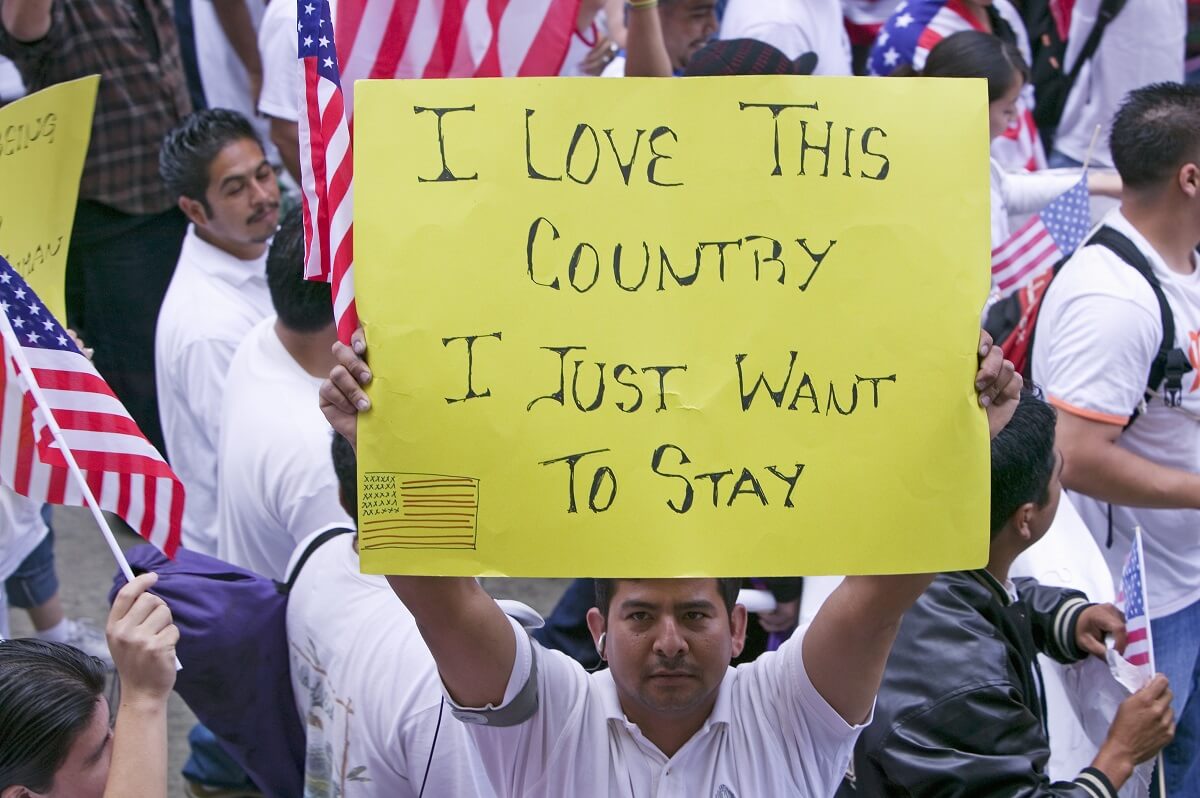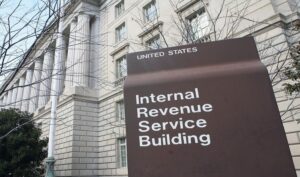
Now that Donald Trump has won a second term as U.S. President, many immigrants, their families, and individuals exploring the immigration process are wondering what changes may be in store. Immigration was a cornerstone of Trump’s first administration, with significant changes to policies and processes that affected millions. This post will guide you through what to expect from his new administration, covering possible shifts in family-based immigration, asylum, DACA, and green card policies. If you're concerned about Trump's immigration policies, CitizenPath is here to help you understand the changes and provide tools to help immigrants achieve their goals. We will always be a nation of immigrants.
What New Immigrants Can Expect with Trump's Immigration Policies
The new Trump administration is expected to target specific aspects of the immigration system, likely with policies aimed at reducing immigration numbers and tightening controls on entry. Here’s what you should know about the potential shifts that could impact families and individuals in the U.S. immigration process.
Family-Based Immigration May Become More Difficult
Family-based immigration may come under increased scrutiny, as it did during Trump’s first term. The former administration made attempts to limit family-based sponsorships, which allow U.S. citizens and permanent residents to petition for close relatives to join them in the United States. During his campaign, Trump emphasized a preference for “merit-based” immigration over family-based sponsorship.
This means there could be proposals to reduce the number of family-based visas, especially for relatives outside the immediate family category (such as siblings and adult children of U.S. citizens). While these changes would require congressional approval, they signal a direction that could affect many families. On other hand, tightening the requirements related to the public charge rule could be implemented again through executive action.
If you are considering sponsoring a relative through the family-based immigration process, now may be a good time to start the process. By filing a petition soon, you may reduce the risk of being affected by President Trump's immigration policies.
Employment-Based Green Card Eligibility Could Shift
While family-based immigration has been a primary focus, employment-based immigration might see a different approach. Trump has long advocated for a “merit-based” system, which could prioritize certain skills, education, or job offers over family ties. This could mean a reduction in family-based visa quotas and an increase in employment-based visas for individuals with specialized skills.
The administration might also introduce stricter requirements for H-1B and other employment visas, potentially impacting international students and professionals who hope to build a career in the U.S. If changes like these are implemented, they could affect processing times and eligibility criteria for employment-based green cards.
Staying proactive is key for those considering an employment-based visa. Make sure your documentation is complete and accurate, and consider applying soon to minimize delays.
DACA and Dreamers Face More Uncertainty
The Deferred Action for Childhood Arrivals (DACA) program, which protects certain undocumented immigrants brought to the U.S. as children, has faced challenges throughout recent years. Trump’s previous administration attempted to phase out DACA, leading to multiple legal battles. As president once again, Trump may continue efforts to end or replace the program, which currently allows beneficiaries to work and study in the U.S. without fear of deportation.
This could mean increased uncertainty for DACA recipients and applicants, as well as possible restrictions on renewals. While changes to DACA would face immediate legal challenges, Dreamers may still find themselves in an unpredictable environment.
Current DACA recipients should stay informed about Trump immigration policy updates and consider renewing their status as soon as possible to avoid gaps in protection. CitizenPath’s resources are designed to help you stay up-to-date and navigate these changes with confidence.
Asylum and Refugee Policies Will Likely Tighten
Asylum seekers and refugees may also face significant changes under the new administration. Trump’s previous term saw a reduction in the number of refugees admitted to the U.S. and an increase in barriers for asylum seekers at the southern border. His recent campaign rhetoric suggested a focus on securing borders and limiting asylum admissions.
Expected changes could include stricter rules for asylum eligibility, increased scrutiny in the asylum application process, and expanded use of policies that prevent individuals from applying for asylum if they have passed through a third country. There may also be renewed emphasis on border security measures that could impact the entry process for asylum seekers.
If you are considering applying for asylum, it’s crucial to understand the process and gather as much supporting evidence as possible. Although CitizenPath cannot support asylum applications, we encourage you to seek out legal help.
Border Security and Enforcement Under a Trump Administration
As part of his campaign promises, Donald Trump emphasized a strong stance on border security, including plans to further expand the border wall and deter unauthorized immigration. Increased funding for ICE (Immigration and Customs Enforcement) and Customs and Border Protection could also mean more resources devoted to deportation and enforcement measures.
Trump's Immigration Policies Include Building a Border Wall
The Trump administration plans to expand the U.S.-Mexico border wall, building upon the construction from his first term. This initiative seeks to deter unauthorized crossings and enhance national security. The administration intends to allocate substantial federal resources to expedite the wall's completion.
A Call for Mass Deportations
A central component of the administration's strategy is the initiation of mass deportations for undocumented immigrants. The goal is to conduct the largest domestic deportation operation in American history, targeting millions of individuals without a legal immigration status or parole. This effort may involve expedited removal processes and could extend over several years. However, this is one of Trump's immigration policies that may be fiscally impractical when Americans learn the true cost of locating and deporting an estimated 12 million unlawfully present immigrants.
Workplace Raids and Employer Prosecution
To enforce immigration laws, the administration plans to increase workplace raids. These operations aim to identify and remove undocumented workers, ensuring compliance with employment regulations. Employers may face heightened scrutiny and potential penalties for hiring unauthorized workers.
Hire Additional Border Patrol Agents
Enhancing border security includes bolstering the workforce of border agents. The administration intends to recruit additional Customs and Border Protection officers to monitor and secure the border effectively. This increase aims to improve the capacity to prevent unauthorized entries and manage border-related challenges
These initiatives reflect the administration's commitment to stringent immigration enforcement and border security. Individuals and families involved in the immigration process should stay informed about these developments, as they may impact various aspects of immigration status and procedures.
Staying Informed and Prepared with CitizenPath
Immigration policy can be complex, and understanding changes under a new administration can feel overwhelming. That’s why CitizenPath is here to help immigrants and their families during all stages of the U.S. immigration process. From simple, affordable forms to step-by-step guidance, CitizenPath makes it easier to navigate the immigration journey.
CitizenPath provides simple, affordable, step-by-step guidance through USCIS immigration applications. Individuals, attorneys and non-profits use the service on desktop or mobile device to prepare immigration forms accurately, avoiding costly delays. CitizenPath allows users to try the service for free and provides a 100% money-back guarantee that USCIS will approve the application or petition. We provide support for the Adjustment of Status Package (Form I-485), Naturalization Package (Form N-400), and several other immigration services.
The landscape under Trump’s immigration policies may be challenging, but by staying informed, immigrants can better prepare for potential changes. CitizenPath is here to guide you through every step, providing trustworthy support as you make important decisions for you and your family.
If you’re concerned about upcoming changes, consider starting your applications now and gathering all the necessary documentation. Sign up for the CitizenPath newsletter below to stay updated and take control of your immigration journey with confidence and support.
Want more immigration tips and how-to information for your family?
Sign up for CitizenPath’s FREE immigration newsletter and
SAVE 10%
on our immigration services






